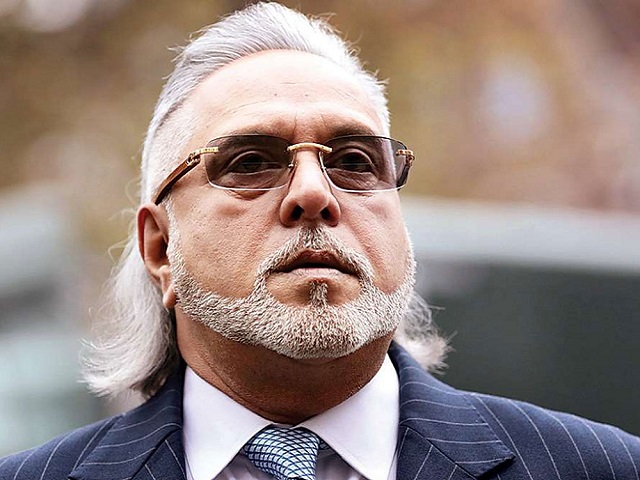
The Companies and Insolvency Court of the United Kingdom declared fugitive Indian businessman Vijay Mallya bankrupt on July 26, 2021.
The Chief Insolvencies and Companies Court Judge Michael Briggs said during a virtual hearing of the Chancery Division of the London High Court, “As at 15.42 [UK time], I adjudicate Dr Mallya bankrupt.”
The Companies Court is a special court within the Chancery Division of the High Court of Justice of England and Wales, which deals with matters relating to companies.
What does this mean for Indian banks?The order is a major win for the consortium of Indian banks, who can now pursue a worldwide freezing order on Mallya’s assets to seek repayment of debt owed by his now-defunct Kingfisher Airlines. |
Mallya denied permission to appeal
Vijay Mallya’s barrister Philip Marshall had sought a stay and adjournment of the bankruptcy order. The Companies Court however, denied Mallya the right to appeal against the bankruptcy order by concluding that there was “insufficient evidence” that Mallya will go back to India and that the debt would be paid back to the petitioners in full within a reasonable time period.
Who are the petitioners?
The petitioners in this case comprise a consortium of 13 Indian banks led by the State Bank of India (SBI). The other banks include Punjab National Bank, Federal Bank Ltd, Bank of Baroda, UCO Bank, Corporation bank, IDBI Bank, Punjab & Sind Bank, Jammu & Kashmir Bank, Indian Overseas Bank, State Bank of Mysore, JM Financial Asset Reconstruction Co. Pvt Ltd and United Bank of India.
Vijay Mallya Case: Key Highlights
•The consortium of Indian banks was seeking an order that would make Mallya bankrupt for failing to clear the judgment debt of Rs 10,763 crore, as determined by Karnataka’s Debt Recovery Tribunal in January 2017. The banks were represented by law firm TLT LLP and barrister Marcia Shekerdemian.
•The judgment debt derives from the personal guarantee Mallya gave on loans lent to Kingfisher Airlines.
•Vijay Mallya’s legal team, however, argued that the debt remains disputed and the ongoing proceedings in India obstructed a bankruptcy order from being granted in the UK.
•The debt in question comprises both the principal and interest amount, plus compound interest at the rate of 11.5 percent per annum from June 25, 2013 onwards. Vijay Mallya has submitted applications to contest the compound interest charges.
•His counsel Philip Marshall argued that the bankruptcy petition should be dismissed as the Indian banks were paid Rs 5,776.2 crore following the DRT sale of Mallya-owned UBL shares in India. A majority of the shares were sold on June 23, 2021.
•Further, he argued that a Rs 770 crore by sale of shares had also been realised but not transferred to the banks yet, which means a total of Rs 6,546.2 crore had now been paid off, or “realised in terms of assets”.
•The Enforcement Directorate had also previously attached Mallya’s shares under the Prevention of Money Laundering Act (PMLA) and they were then sold and transferred to the banks under an order from the PMLA court in Mumbai on May 24.
Mallya tweeted saying “ED attach my assets worth 14K crores at the behest of Govt Banks against debt of 6.2K crores. They restore assets to Banks who recover 9K crores in cash and retain security over 5K crores more. Banks ask Court to make me Bankrupt as they may have to return money to the ED. Incredible.”
ED attach my assets worth 14K crores at behest of Govt Banks against debt of 6.2K crores.They restore assets to Banks who recover 9K crores in cash and retain security over 5K crores more.Banks ask Court to make me Bankrupt as they may have to return money to the ED. Incredible.
— Vijay Mallya (@TheVijayMallya)
July 26, 2021
What happens when a person is declared bankrupt?•The person who has been declared bankrupt will be required to cooperate with the trustee. •Hence, all of Vijay Mallya’s bank accounts will now be frozen besides money to buy essentials. •He will now have to hand over all his assets, his bank and credit cards to a bankruptcy trustee. •The bankruptcy trustee will investigate his affairs and establish his true assets and liabilities and sell relevant assets and repay the creditors. •Mallya will now also be banned from acting as a director of a company or from creating a company without the court’s permission. •He will also be banned from borrowing more than £500 without declaring he is bankrupt. |
Background
•Vijay Mallya, the 65-year-old businessman and owner of the now-defunct Kingfisher Airlines and chairman of UB Group, owes more than Rs 9,000 crore to a consortium of Indian banks in principal and interest.
•He had fled to the United Kingdom in 2016 and despite losing all his court battles against extradition to India in May 2020, he still has not returned to India.
•He is currently on bail and has been fighting on multiple fronts to avoid extradition to India.
•He was ordered to be extradited to India in December 2018 by London’s Westminster Magistrate’s Court.
•The UK government is currently dealing with a “confidential matter” pertaining to Mallya. There is speculation that it perhaps is related to an application from Mallya for political asylum in the United Kingdom.

